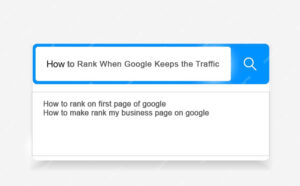In the dynamic world of digital marketing, Search Engine Marketing (SEM) stands out as a potent tool for startups aiming to boost online visibility, drive targeted traffic, and propel their growth. In this article, we’ll delve into strategic tips tailored for startups to master the art of SEM and elevate their online presence to new heights.
Understanding the Essence of SEM for Startups
For startups, where resources are often limited, SEM becomes a key player in the digital marketing playbook. SEM encompasses paid advertising efforts to appear prominently in search engine results, making it an invaluable strategy for startups looking to gain traction quickly.
**1. Keyword Research: The Foundation of SEM
Start your SEM journey with robust keyword research. Understand the terms your potential customers are searching for and build your strategy around those keywords. Tools like Google Keyword Planner can provide insights into the volume and competition for relevant keywords in your industry.
For startups, targeting long-tail keywords can be particularly effective. These are more specific phrases that may have lower search volumes but often indicate higher intent, leading to more qualified leads for your business.
**2. Crafting Compelling Ad Copy
In the world of SEM, your ad copy is your first impression. Craft compelling and concise ad copy that not only includes your chosen keywords but also resonates with your target audience. Highlight your unique selling propositions and make it clear how your startup solves their problems or meets their needs.
Consider employing ad extensions to provide additional information or incentives, such as promotions or links to specific pages on your website. A compelling call-to-action can significantly impact your ad’s click-through rate.
You would like to read: The Psychology Of Click-Worthy Content: Unveiling The Secrets To Engage And Captivate
**3. Landing Page Optimization
Your SEM efforts shouldn’t end with a click – they should lead to conversions. Ensure that the landing page your ad directs users to is optimized for a seamless user experience. The landing page should align with the ad’s messaging and provide clear calls-to-action that guide visitors toward your desired outcome, whether it’s making a purchase or filling out a form.
A well-optimized landing page not only improves user satisfaction but also contributes to a higher Quality Score, a metric used by search engines to evaluate the relevance of your ads.
**4. Budgeting and Bidding Strategies
For startups with limited budgets, effective budgeting and bidding strategies are crucial. Set realistic daily and monthly budgets based on your business goals and closely monitor your spending. Utilize cost-per-click (CPC) bidding to control the maximum amount you’re willing to pay for a click on your ad.
Experiment with bidding strategies to find what works best for your startup. Test automated bidding features provided by platforms like Google Ads to find the optimal balance between visibility and cost-effectiveness.
**5. Geo-Targeting and Audience Segmentation
Refine your SEM strategy by leveraging geo-targeting and audience segmentation. For startups catering to specific locations or demographics, geo-targeting ensures your ads reach the right audience. Platforms like Google Ads allow you to specify the locations where your ads will appear.
Audience segmentation involves categorizing your audience based on factors such as age, gender, interests, or online behavior. Tailor your ads to resonate with each segment, increasing the likelihood of engagement and conversions.
You would like to read: Top SEO Trends For 2024: Stay Ahead Of The Game 🚀
**6. Continuous Monitoring and Optimization
SEM is not a set-it-and-forget-it strategy. Successful startups continually monitor and optimize their SEM campaigns. Regularly review performance metrics such as click-through rates, conversion rates, and return on investment (ROI). Identify high-performing keywords and ad copy, and allocate more resources to these areas.
Equally important is identifying underperforming elements and experimenting with adjustments. A/B testing can help you compare different ad variations, landing pages, or bidding strategies to refine your approach over time.
**7. Conversion Tracking and Analytics
Implement conversion tracking to measure the success of your SEM campaigns. Track actions that align with your business goals, whether it’s a purchase, form submission, or another desired outcome. Analytics tools like Google Analytics provide in-depth insights into user behavior, helping you understand how visitors interact with your website.
Use these insights to refine your strategy, focusing on the channels, keywords, and ad creatives that contribute most to your startup’s success.
Conclusion: Elevating Your Startup with SEM Mastery
In conclusion, mastering SEM is a journey that can significantly impact the success of your startup. By understanding the nuances of keyword research, crafting compelling ad copy, optimizing landing pages, and employing strategic budgeting, startups can navigate the competitive landscape of digital marketing with confidence.
Continuous monitoring, optimization, and the use of analytics are the cornerstones of a successful SEM strategy. For startups willing to invest time and effort into mastering SEM, the rewards in terms of increased visibility, targeted traffic, and business growth can be substantial. As the digital landscape continues to evolve, startups equipped with SEM mastery are well-positioned to thrive.










